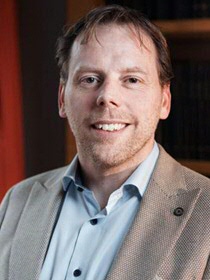Medicijn om longblaasjes te herstellen
Professor Reinoud Gosens van het Groningen Research Institute of Pharmacy (GRIP) werkt samen met een internationaal team van toponderzoekers aan een antwoord op de vraag: waarom herstellen de longblaasjes bij mensen met COPD niet? Het onderzoek van Gosens en zijn team heet 'Op ontdekkingsreis naar de donkere kant van de long'. Als deze kant van de long dat geheim prijsgeeft, komt de droom van talloze mensen met een longziekte dichterbij: blijvend longherstel en geen benauwdheid meer.

In de longen komen ‘voorlopercellen’ voor. Dat zijn cellen die op stamcellen lijken. Samen met andere longcellen zorgen ze voor herstel van longweefsel na schade. Bij mensen met COPD doen de groeifactoren die de voorlopercellen aanzetten tot herstel het niet goed genoeg. Daarom is het belangrijk dat er nieuwe geneesmiddelen komen die ervoor zorgen dat het longweefsel herstelt.
Reinoud Gosens en zijn team hebben onderzocht hoe de genen in de longen van mensen met COPD zich gedragen. Zo konden zij op zoek gaan naar mogelijke geneesmiddelen, die ze vervolgens hebben getest op een ‘mini-long’. Lees het volledige nieuwsbericht en over de onderzoeksresultaten op de Longfonds-website.
Meer nieuws
-
29 januari 2026
Microplasticonderzoek - opgeblazen nieuws of een echt gevaar?
-
27 januari 2026
ERC Proof of Concept grant voor Maria Loi
